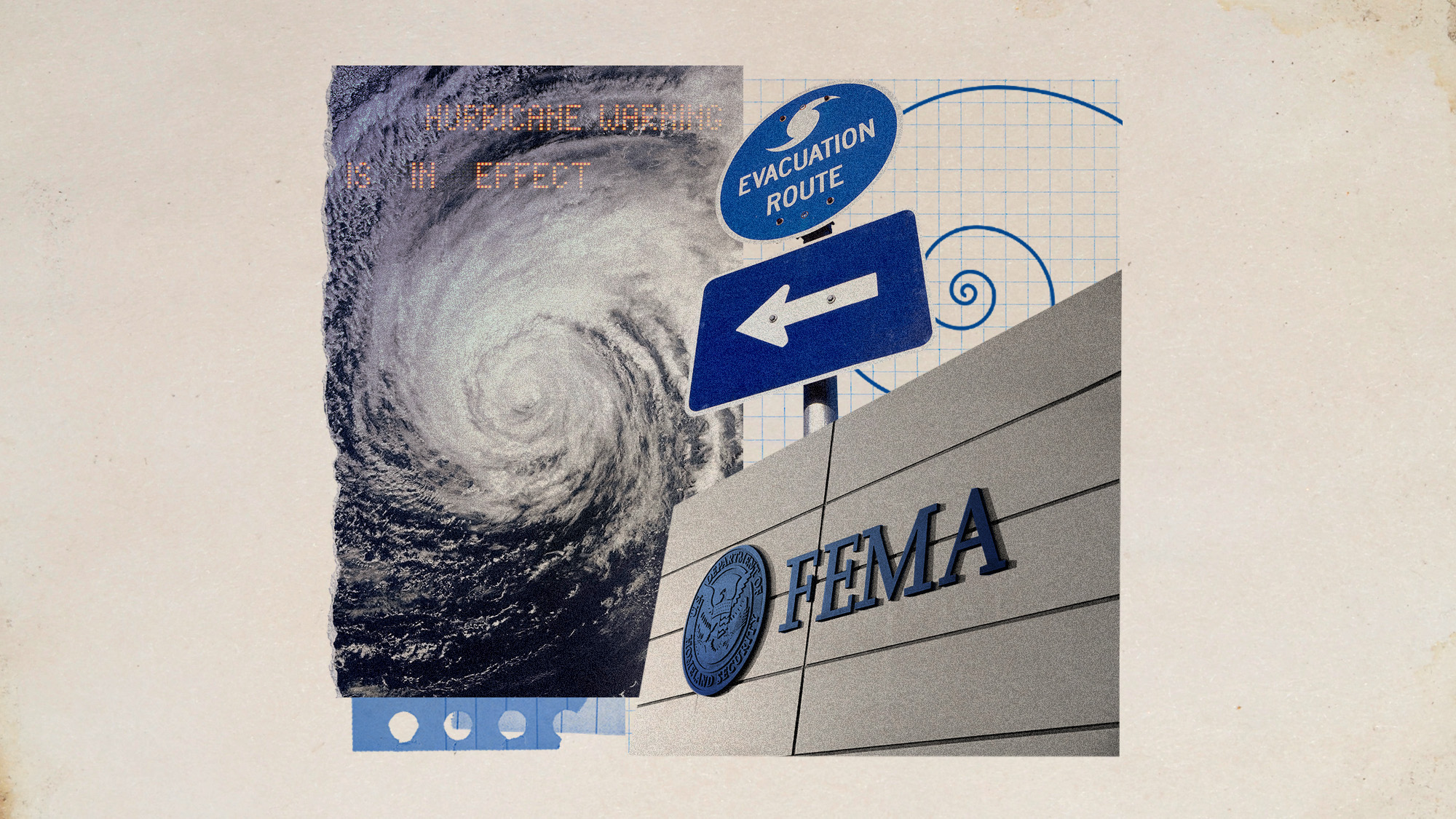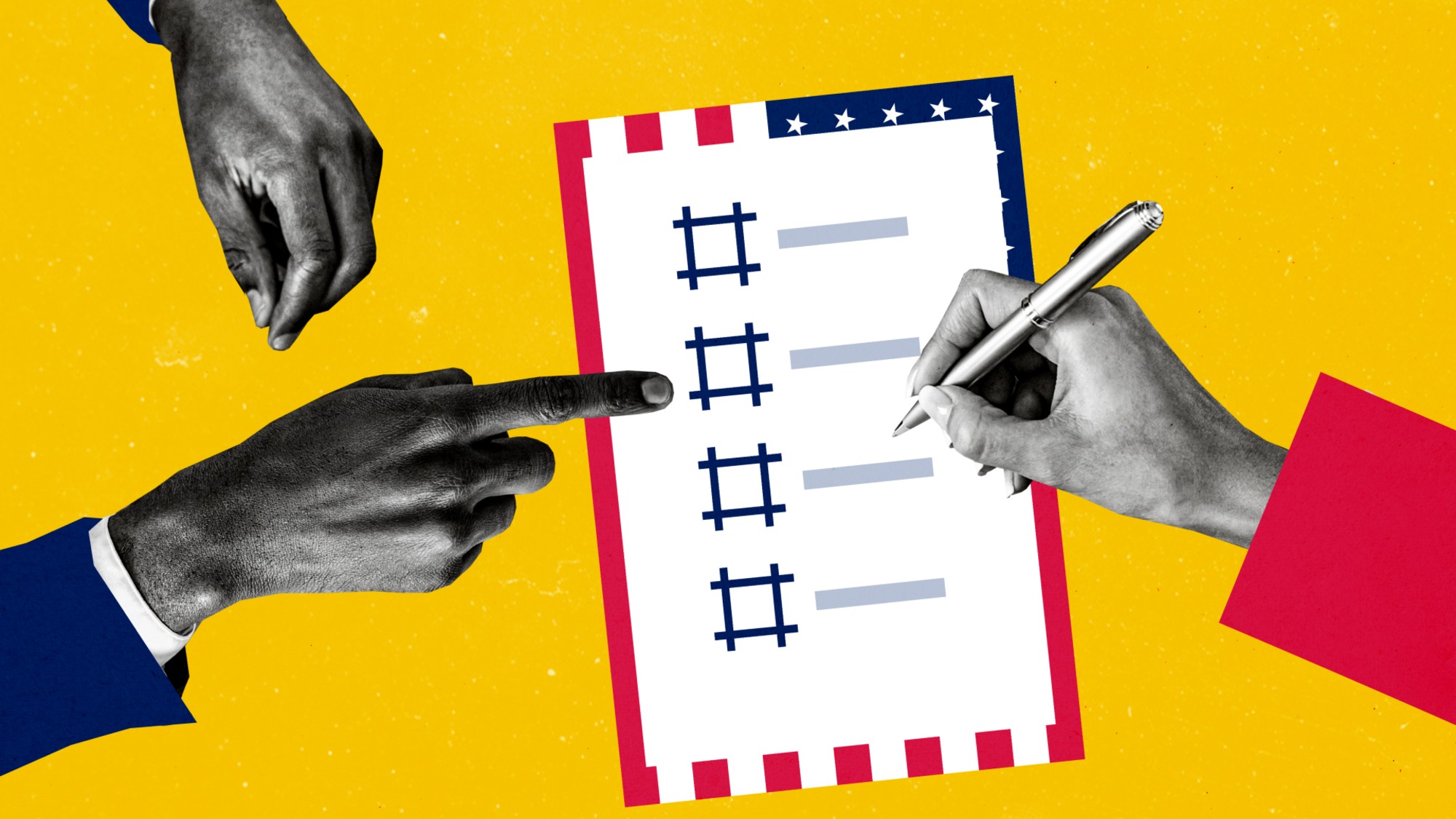Hurricane season is here. How will Trump's FEMA respond?
An internal review says the agency is not ready for big storms


A free daily email with the biggest news stories of the day – and the best features from TheWeek.com
You are now subscribed
Your newsletter sign-up was successful
When disaster strikes, FEMA is there. The Federal Emergency Management Agency has led America's response to storms, wildfires and other catastrophes for decades, but that is changing under President Donald Trump. As a result, coastal states may struggle as hurricane season arrives.
Trump is moving to "weaken FEMA and shift disaster response to the states," said the Los Angeles Times. The president made his preferences clear after January's devastating California wildfires. "You don't need FEMA," Trump said then. "You need a good state government." Under that approach, the agency is undergoing "layoffs, budget cuts, grant cancellations and other challenges" while leaving states to fend for themselves. But California and other states are "struggling to keep pace" with more frequent and more intense disasters brought on by climate change.
The president's philosophy is "on the verge of a high-stakes stress test," said Axios. FEMA appears to be "understaffed, underfunded and underprepared" for the Atlantic hurricane season. Agency officials seem to agree with that gloomy assessment. "FEMA is not ready" to respond to a big storm, they said in an internal review obtained by CNN.
The Week
Escape your echo chamber. Get the facts behind the news, plus analysis from multiple perspectives.

Sign up for The Week's Free Newsletters
From our morning news briefing to a weekly Good News Newsletter, get the best of The Week delivered directly to your inbox.
From our morning news briefing to a weekly Good News Newsletter, get the best of The Week delivered directly to your inbox.
What did the commentators say?
The United States is "becoming less ready for natural disasters," said The Washington Post editorial board. It's not just FEMA. The White House is "gutting" the National Oceanic and Atmospheric Administration, which "monitors weather, conducts climate research and maintains intricate forecast models" that help communities prepare for severe weather. The Trump administration has also "repeatedly denied federal aid to disaster-stricken regions" like Arkansas after it experienced tornadoes. Republicans in Congress must push back. "Americans need a government that cares about their safety," the outlet added.
It is "appealing" to say that FEMA's work should be "left to states and localities," said Donald F. Kettl at Governing. But those levels of government "aren't up to the job" of disaster response. The creation of FEMA in 1979 was the result of a "long historical process" during which federal officials decided that "preserving local communities was too important a job to be left to them alone." Trump administration officials will likely realize that lesson anew when the next big storm strikes and they find it "politically impossible" to "shrug off local calls for help because of some notion that it's simply a local problem."
What next?
Kristi Noem, secretary of the Department of Homeland Security, told Congress on Tuesday that FEMA should be reformed to "increase the burden on states to respond to natural disasters," Reuters said. The aim is to have states "manage their emergencies and we come in and support them," she said.
But state and local governments are "already in charge of disasters," said NPR. FEMA only comes in to help when requested by a state government. Without federal support, states would have to hire "thousands of additional personnel" and "face billions of dollars in recovery costs" when disaster strikes. As hurricane season arrives, "states aren't prepared" for that responsibility.
A free daily email with the biggest news stories of the day – and the best features from TheWeek.com
Joel Mathis is a writer with 30 years of newspaper and online journalism experience. His work also regularly appears in National Geographic and The Kansas City Star. His awards include best online commentary at the Online News Association and (twice) at the City and Regional Magazine Association.
-
 Antonia Romeo and Whitehall’s women problem
Antonia Romeo and Whitehall’s women problemThe Explainer Before her appointment as cabinet secretary, commentators said hostile briefings and vetting concerns were evidence of ‘sexist, misogynistic culture’ in No. 10
-
 Local elections 2026: where are they and who is expected to win?
Local elections 2026: where are they and who is expected to win?The Explainer Labour is braced for heavy losses and U-turn on postponing some council elections hasn’t helped the party’s prospects
-
 6 of the world’s most accessible destinations
6 of the world’s most accessible destinationsThe Week Recommends Experience all of Berlin, Singapore and Sydney
-
 Judge orders Washington slavery exhibit restored
Judge orders Washington slavery exhibit restoredSpeed Read The Trump administration took down displays about slavery at the President’s House Site in Philadelphia
-
 How are Democrats turning DOJ lemons into partisan lemonade?
How are Democrats turning DOJ lemons into partisan lemonade?TODAY’S BIG QUESTION As the Trump administration continues to try — and fail — at indicting its political enemies, Democratic lawmakers have begun seizing the moment for themselves
-
 ICE eyes new targets post-Minnesota retreat
ICE eyes new targets post-Minnesota retreatIn the Spotlight Several cities are reportedly on ICE’s list for immigration crackdowns
-
 Judge blocks Hegseth from punishing Kelly over video
Judge blocks Hegseth from punishing Kelly over videoSpeed Read Defense Secretary Pete Hegseth pushed for the senator to be demoted over a video in which he reminds military officials they should refuse illegal orders
-
 How did ‘wine moms’ become the face of anti-ICE protests?
How did ‘wine moms’ become the face of anti-ICE protests?Today’s Big Question Women lead the resistance to Trump’s deportations
-
 Judge blocks Trump suit for Michigan voter rolls
Judge blocks Trump suit for Michigan voter rollsSpeed Read A Trump-appointed federal judge rejected the administration’s demand for voters’ personal data
-
 How are Democrats trying to reform ICE?
How are Democrats trying to reform ICE?Today’s Big Question Democratic leadership has put forth several demands for the agency
-
 Trump’s plan to ‘nationalize’ US elections
Trump’s plan to ‘nationalize’ US electionsTalking Points States oversee voting. Will Republicans take over?
